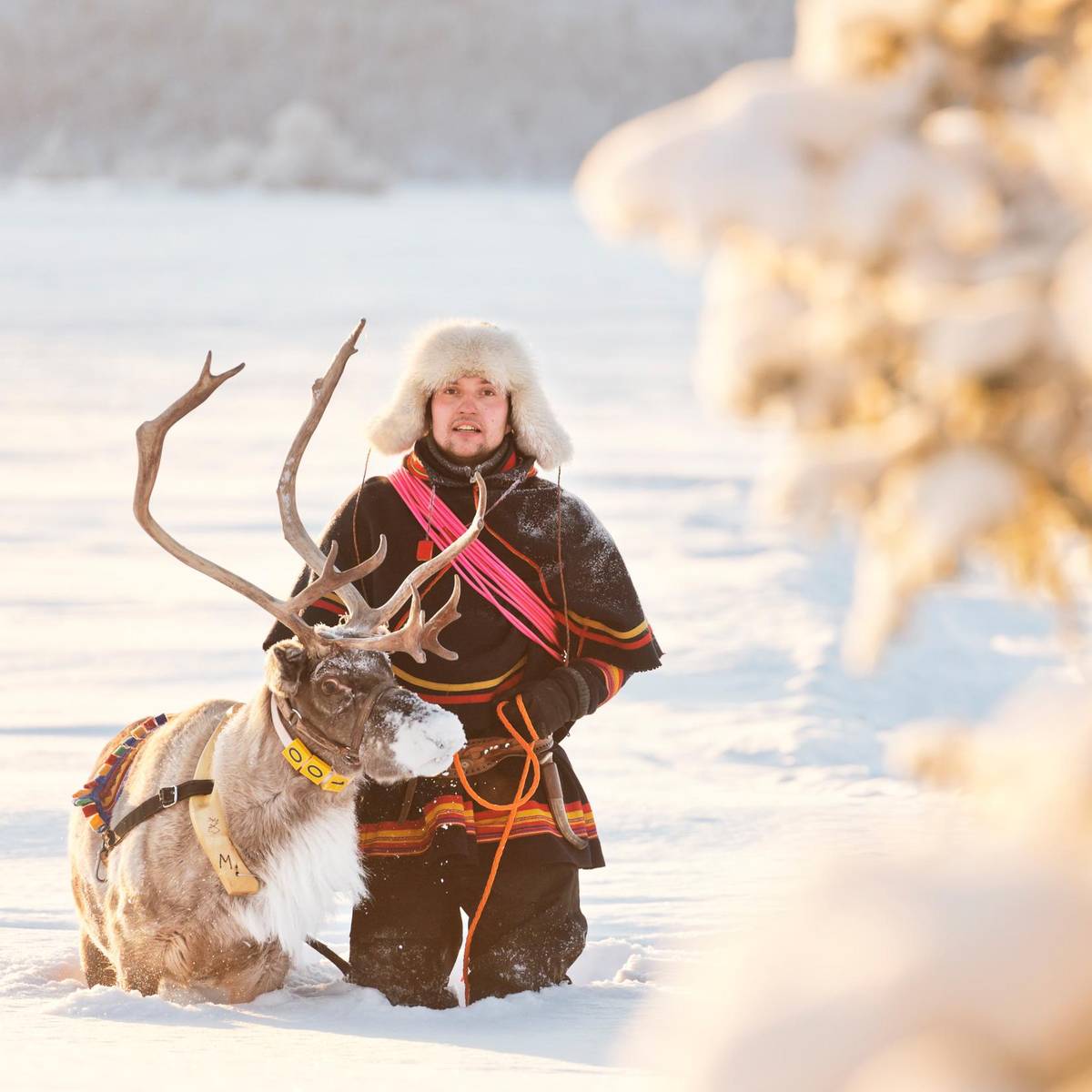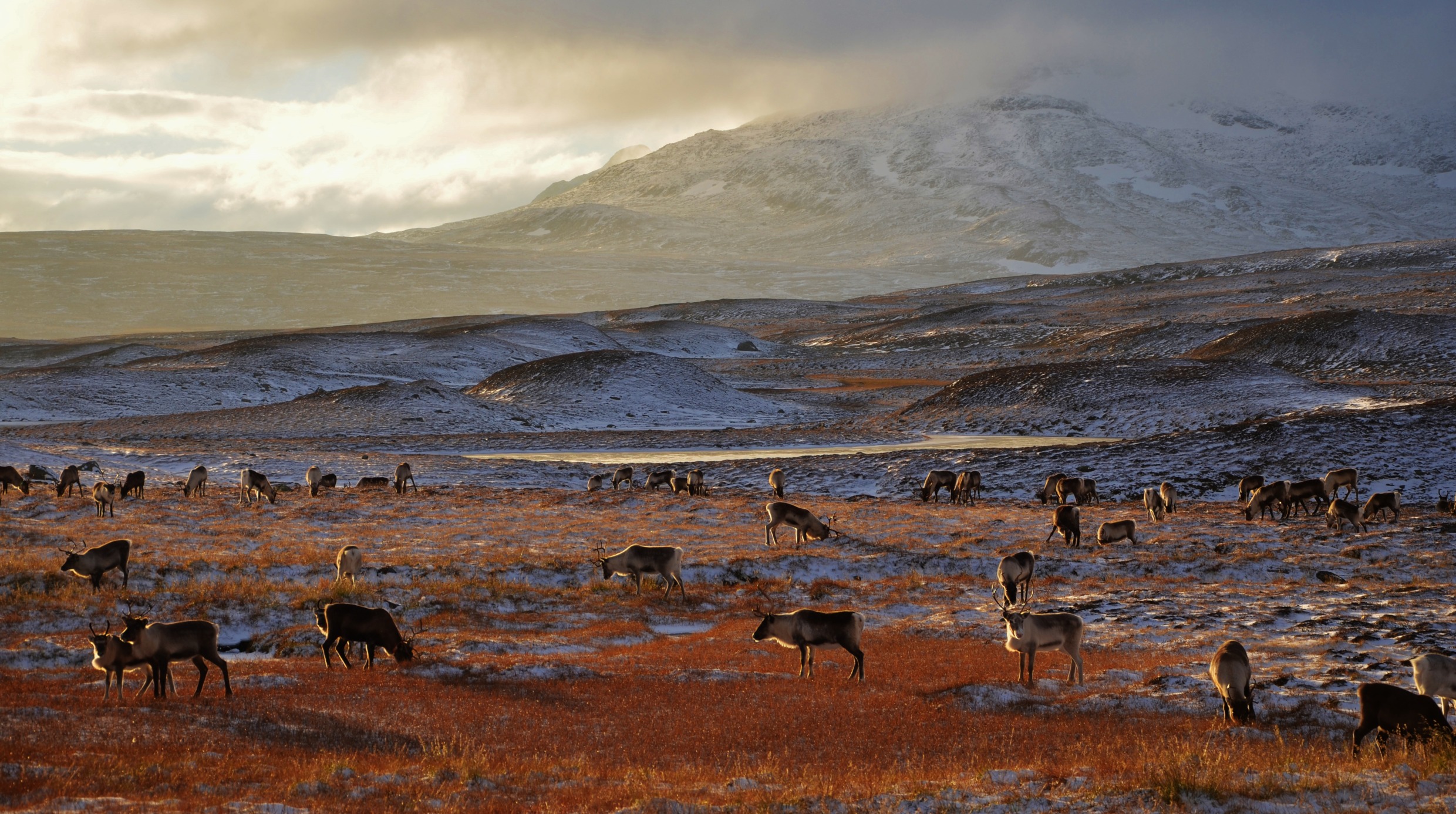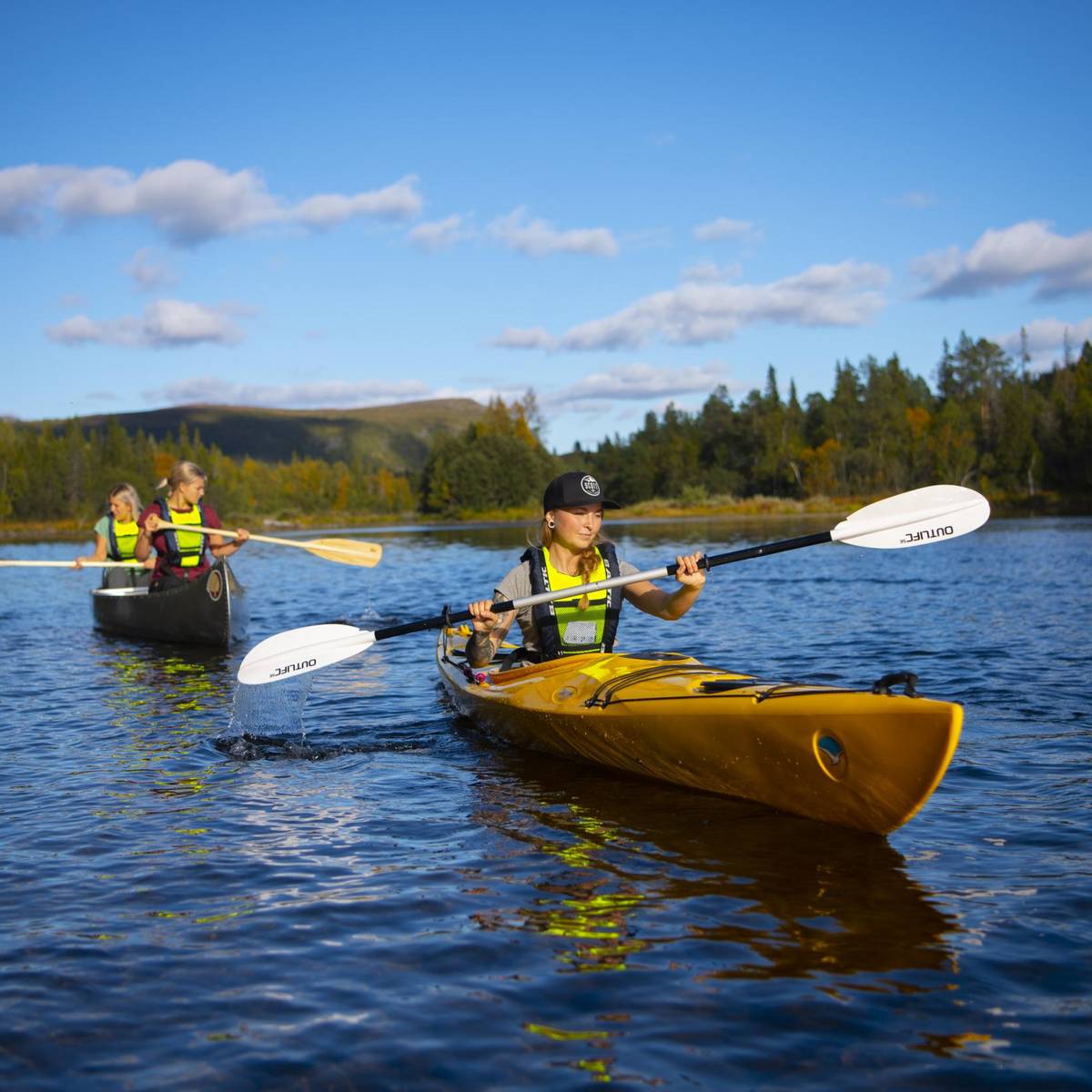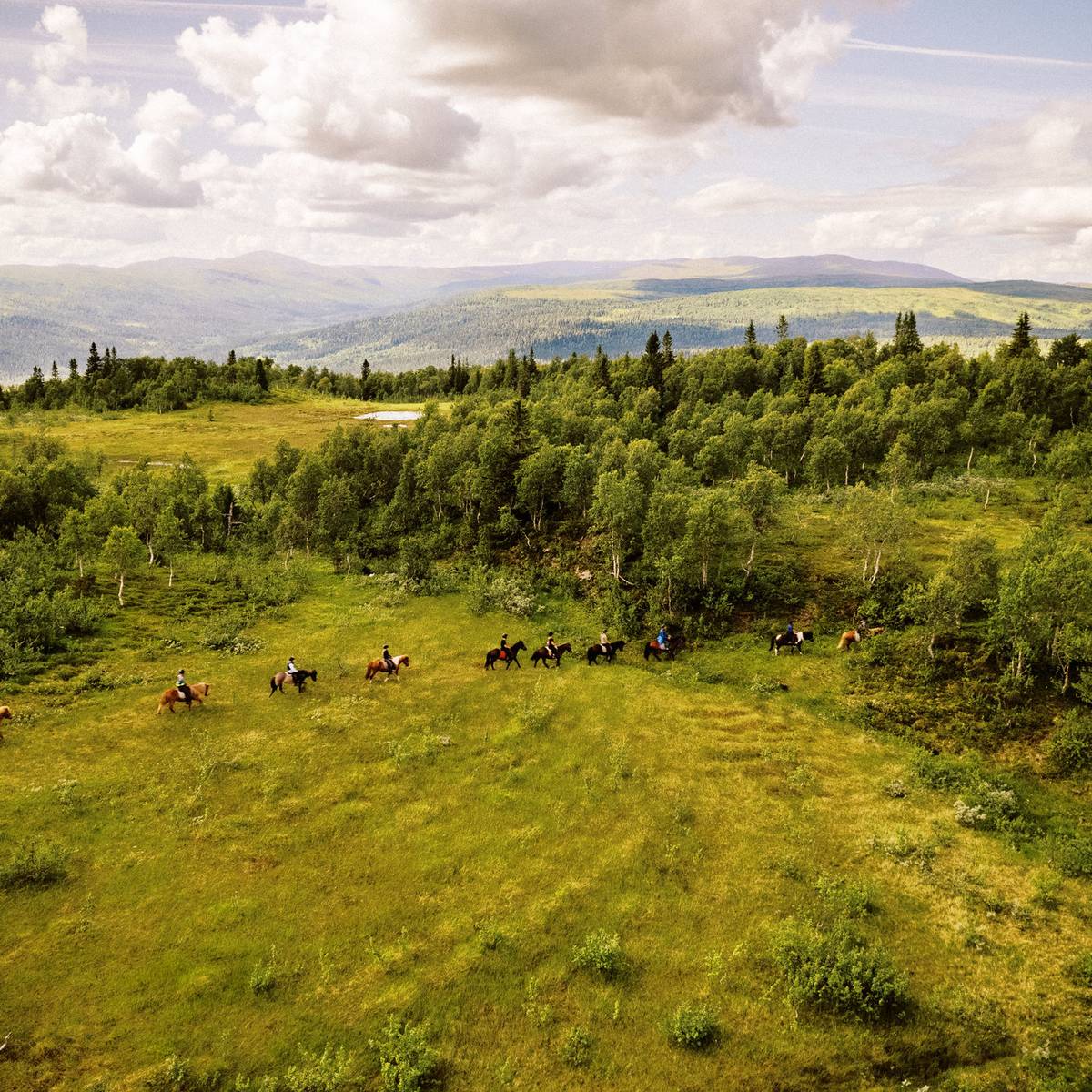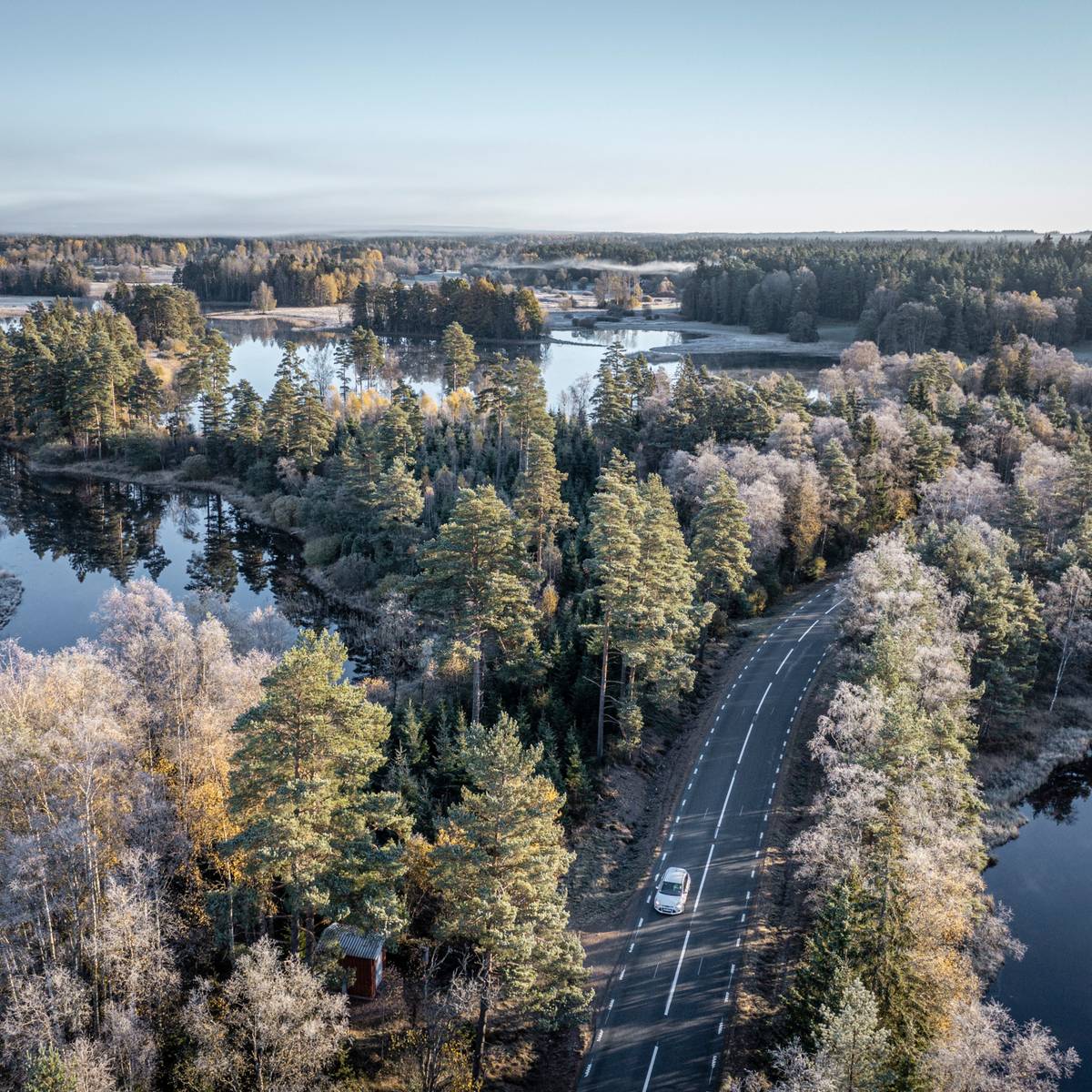What to do and where to stop along the Wilderness Road
With so many things to see and do along the Wilderness Road, it’s worth giving yourself a few days to explore. There are dozens of natural beauty spots and opportunities for hiking, biking, paddling and wild swimming, not to mention fishing and wildlife watching.
Here are just a few of the unmissable sights and stops along the Wilderness Road.
Waterfalls, lakes and underwater caves
The Wilderness Road boasts a plethora of lakes, waterways and easily accessible waterfalls. Take Hällingsåfallet, one of Sweden’s tallest waterfalls, about an hour and a half from Strömsund. Plunging over 40 metres into Hällingsån canyon, Sweden’s longest water-filled canyon, with an accessible footpath from the parking area, as well as a five-kilometre-long hiking trail.
Another waterfall highlight is Trappstegsforsen, by Lake Kultsjön – the tumbling cascades are popular with fishing enthusiasts and photographers alike. Also of note – there’s a little café here in summertime.
